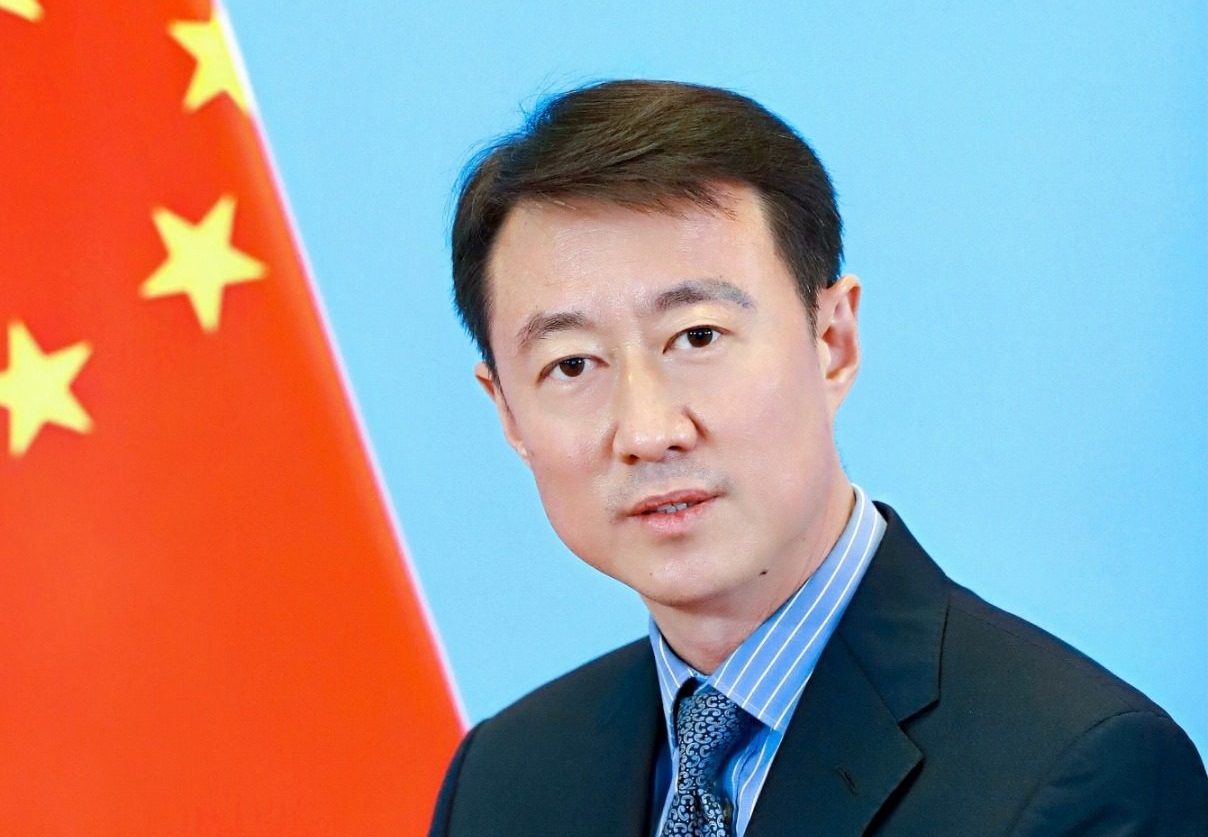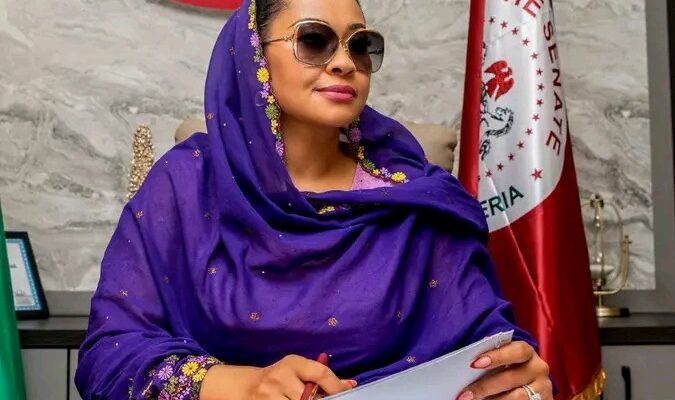News
Student Loan: FG Finalises Repayment Plans Ahead Feb 21 Launch

Ahead of the official launch of the Student Loan Scheme on February 21, 2024, the Nigeria Education Loan Fund said it is finalising repayment modalities.
Although it confirmed that the 10 per cent direct deduction from the beneficiaries’ salaries still stands, applicants can pay higher percentages or 100 per cent upfront if they choose.
However, persons confirmed to be dead, terminally ill, and incapable of earning a living through work will be granted waivers, a source close to the board’s activities told The PUNCH.
“First and foremost, the modality for loan recovery will be done by the employers, which is what we are putting in place at the moment. The loan is N500,000 per year. So, in four years of schooling, that adds up to N2m. And it is interest-free, which means you are not paying more.
“You will pay the baseline 10 per cent. But if you so wish, you can ask your employer to increase your recuperation rate.
“If you don’t want to be encumbered by any debt, you can give a standing order that you want your employer to take away 15 or 20 per cent of your salary every month, or you can choose to clear it up all at once. If you do your business and you can make enough money, you can clear it up,” the source disclosed.
Asked if the rates would be prorated according to the remuneration package of beneficiaries, the source replied, “Everyone will pay a flat rate.”
On Wednesday, February 7, the Executive Secretary of NELFund, Dr Akintunde Sawyerr, confirmed to our correspondent that the much-awaited scheme would go live on February 21, when President Bola Tinubu launches it at the State House, Abuja.
“Yes, it is confirmed. It is confirmed. It will be launched on February 21,” Sawyerr confirmed to our correspondent exclusively.
On June 12, 2023, President Tinubu signed the Access to Higher Education Act, 2023 into law to enable indigent students to access interest-free loans for their educational pursuits in any Nigerian tertiary institution.
The move was in “fulfillment of one of his campaign promises to liberalise funding of education,” a member of the then Presidential Strategy Team, Dele Alake, said.
The Act, popularly known as the Students Loan Law, also established the Nigerian Education Loan Fund, which is expected to handle all loan requests, grants, disbursement, and recovery.
The source further explained that beneficiaries will get a two-year “grace period” after completing the one-year National Youth Service.
“The moment they (beneficiaries) finish NYSC, they have two years of grace, almost like a moratorium, after which they will commence repayment.
“So, the idea is we are hoping a lot of them will get jobs. And those who don’t get jobs will run their businesses. That is why, in the beginning, when you apply for a loan, you must submit your National Identity Number and Bank Verification Number.
“If you are in private business, you will tell the loan board how you want to repay, either in the 10 per cent model or any other percentage you want,” the source added.
However, beneficiaries who cannot find employment within two years will periodically report their employment status to the board.
Speaking exclusively to our correspondent, the Special Adviser to the President on Information and Strategy, Mr Bayo Onanuga, explained the delay, saying, “Don’t forget, the last time they met the President, he asked them to expand their mandate to include those who want to learn vocational skills. That could be the reason why the whole thing was delayed because they had to increase the scope.”
Meanwhile, the President of the National Association of Nigerian Students, Lucky Emonefe, has expressed concern over their (NANS) non-involvement in the implementation of the loan disbursement.
In an interview with one of our correspondents, Emonefe said, “On the student loan, we have some worries. Fine, the president has good intentions but I don’t think those given the responsibility to do it are serious.
“In the first place, when they wanted to sign these student loans, we recalled that NANS was invited by Mr President but as I speak now, they want to kick-start it but we have not been informed. We have not seen the guidelines on how students can access it.
“If they include private schools, while the students at UNIBEN pay N120,000 and those at Idahosa University pay N1m, it may lead to a situation where UNIBEN will increase their school fees. So, this is our worry.”
Student Loan: FG Finalises Repayment Plans Ahead Feb 21 Launch
Ahead of the official launch of the Student Loan Scheme on February 21, 2024, the Nigeria Education Loan Fund said it is finalising repayment modalities.
Although it confirmed that the 10 per cent direct deduction from the beneficiaries’ salaries still stands, applicants can pay higher percentages or 100 per cent upfront if they choose.
However, persons confirmed to be dead, terminally ill, and incapable of earning a living through work will be granted waivers, a source close to the board’s activities told The PUNCH.
“First and foremost, the modality for loan recovery will be done by the employers, which is what we are putting in place at the moment. The loan is N500,000 per year. So, in four years of schooling, that adds up to N2m. And it is interest-free, which means you are not paying more.
“You will pay the baseline 10 per cent. But if you so wish, you can ask your employer to increase your recuperation rate.
“If you don’t want to be encumbered by any debt, you can give a standing order that you want your employer to take away 15 or 20 per cent of your salary every month, or you can choose to clear it up all at once. If you do your business and you can make enough money, you can clear it up,” the source disclosed.
Asked if the rates would be prorated according to the remuneration package of beneficiaries, the source replied, “Everyone will pay a flat rate.”
On Wednesday, February 7, the Executive Secretary of NELFund, Dr Akintunde Sawyerr, confirmed to our correspondent that the much-awaited scheme would go live on February 21, when President Bola Tinubu launches it at the State House, Abuja.
“Yes, it is confirmed. It is confirmed. It will be launched on February 21,” Sawyerr confirmed to our correspondent exclusively.
On June 12, 2023, President Tinubu signed the Access to Higher Education Act, 2023 into law to enable indigent students to access interest-free loans for their educational pursuits in any Nigerian tertiary institution.
The move was in “fulfillment of one of his campaign promises to liberalise funding of education,” a member of the then Presidential Strategy Team, Dele Alake, said.
The Act, popularly known as the Students Loan Law, also established the Nigerian Education Loan Fund, which is expected to handle all loan requests, grants, disbursement, and recovery.
ADVERTISEMENT
The source further explained that beneficiaries will get a two-year “grace period” after completing the one-year National Youth Service.
“The moment they (beneficiaries) finish NYSC, they have two years of grace, almost like a moratorium, after which they will commence repayment.
“So, the idea is we are hoping a lot of them will get jobs. And those who don’t get jobs will run their businesses. That is why, in the beginning, when you apply for a loan, you must submit your National Identity Number and Bank Verification Number.
“If you are in private business, you will tell the loan board how you want to repay, either in the 10 per cent model or any other percentage you want,” the source added.
However, beneficiaries who cannot find employment within two years will periodically report their employment status to the board.
Speaking exclusively to our correspondent, the Special Adviser to the President on Information and Strategy, Mr Bayo Onanuga, explained the delay, saying, “Don’t forget, the last time they met the President, he asked them to expand their mandate to include those who want to learn vocational skills. That could be the reason why the whole thing was delayed because they had to increase the scope.”
Meanwhile, the President of the National Association of Nigerian Students, Lucky Emonefe, has expressed concern over their (NANS) non-involvement in the implementation of the loan disbursement.
In an interview with one of our correspondents, Emonefe said, “On the student loan, we have some worries. Fine, the president has good intentions but I don’t think those given the responsibility to do it are serious.
“In the first place, when they wanted to sign these student loans, we recalled that NANS was invited by Mr President but as I speak now, they want to kick-start it but we have not been informed. We have not seen the guidelines on how students can access it.
“If they include private schools, while the students at UNIBEN pay N120,000 and those at Idahosa University pay N1m, it may lead to a situation where UNIBEN will increase their school fees. So, this is our worry.”
News
China Reaffirms One-China Principle, Commend Support From Nigeria

News
Senator Natasha on FB listed 3 politicians that should be arrested if anything happens to her

The Senator representing Kogi Central Senatorial district, Natasha Akpoti-Uduaghan has taken to her verified Facebook page to raise a serious alarm, alleging that her life is in danger following a reported attack on her family house in Kogi State.
In the strongly worded post, the Kogi-born lawmaker fingered some high-ranking political figures in Nigeria, declaring that should anything happen to her, the Nigerian Senate President, Godswill Akpabio, former Kogi Governor Yahaya Bello, and the current state Governor, Usman Ododo, should be held accountable.
“Nigeria Police, I reiterate, should any harm befall me, Nigerian Senate President Godswill Akpabio, Ex Gov. Yahaya Bello & Gov. Usman Ododo of Kogi state should be held responsible,” she posted.
Her statement comes, hours after her family home in Kogi was attacked, although details surrounding the incident remain sketchy as of the time of filing this report.
Recall that this is not the first time the Kogi senator is making such allegations against the trio. She made the same statement few weeks ago during her homecoming to Kogi State where she accused the senate president, Akpabio and Yahaya Bello for plotting evil against her.
Senator Natasha has been a vocal political figure and critic of the ruling establishment in Kogi, and this latest development adds to the growing tension in the state and national political landscape.
Authorities are yet to issue an official response to her recent allegations.
News
Emergency Rule: We should be thankful to President Tinubu -Wike

The Minister of the Federal Capital Territory (FCT), Nyesom Wike, has backed President Bola Tinubu’s declaration of a state of emergency in Rivers, saying he wanted the removal of Governor Siminalayi Fubara of the oil-rich state.
In a move that has continued to divide opinions, Tinubu suspended Fubara, his deputy, Ngozi Odu, and members of the House of Assembly following months of political crisis in Rivers State.
But Wike said the president’s move saved Rivers from implosion, arguing that the decision to appoint a sole administrator following Fubara’s suspension was a step in the right direction.
The former Rivers governor said this on Friday in Abuja during a media parley with select journalists.
“As a politician, I am not happy with the declaration of Emergency Rule in Rivers state. I wanted the outright removal of the governor. But for the interest of the state, the president did the right thing to prevent anarchy in the state.” Wike said.
However, people must tell the truth. The governor was gone. He was gone, yes… so when people say the president did this, I say they should be praising him.
“Every morning, they should go to the president and ask, ‘Can we wash your feet for saving us?’”
In February, the Supreme Court waded into the months-long political crisis in Rivers State, asking the Martin Amaewhule-led members of the state’s House of Assembly to resume sitting.
The apex court also barred the Central Bank of Nigeria (CBN) to stop releasing funds to the Rivers State government over what it labelled as disregard for court orders. It dismissed the cross-appeal filed by Fubara challenging the validity of the House of Assembly presided over by Amaewhule as the Speaker and asked the governor to re-present the budget to the lawmakers.
After weeks of back and forth between Amaewhule and the lawmakers over the budget re-presentation and moves to impeach Fubara, President Tinubu stepped in.
He suspended Fubara and his deputy and members of the Rivers State House of Assembly for six months, citing security reasons. Tinubu declared a state of emergency in the state and appointed Vice Admiral Ibok-Ete Ibas (retd) as the sole administrator, a step Wike said saved Rivers.
“Mr president came in and saved the situation, saved Rivers people from that calamity and anarchy,” the FCT minister argued.
-

 News12 hours ago
News12 hours agoTinubu Remains Engaged In Governance From Europe, Will Return After Easter – Presidency
-

 News22 hours ago
News22 hours agoAbuja light rail project must be commissioned on May 29-Wike vows
-

 News22 hours ago
News22 hours agoJust in: Alleged Herdsmen Armed With AK-47 Rifles Take Over Communities In Benue State
-

 News12 hours ago
News12 hours agoFirst Lady Convoy Kills Seven-Year-Old Girl In Ondo State
-

 News22 hours ago
News22 hours agoSEYI Tinubu Speaks On Alleged Abduction, Brutalization Of NANS President Atiku Abubakar Isah
-

 Foreign12 hours ago
Foreign12 hours agoTrump To Close US Embassies In South Sudan, France, Others
-

 News4 hours ago
News4 hours agoEmergency Rule: We should be thankful to President Tinubu -Wike
-

 News11 hours ago
News11 hours agoNJC investigates 18 Imo judges over suspected age falsification





